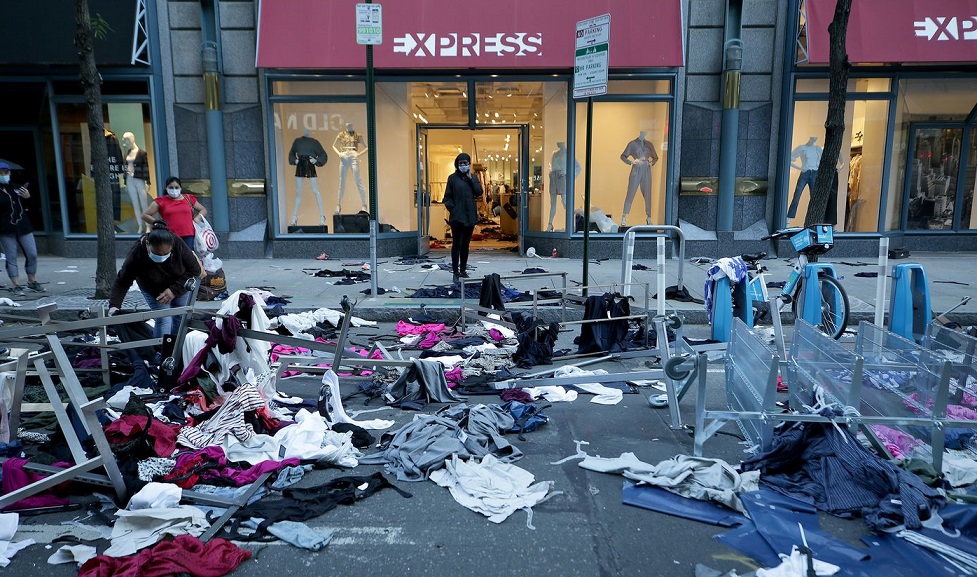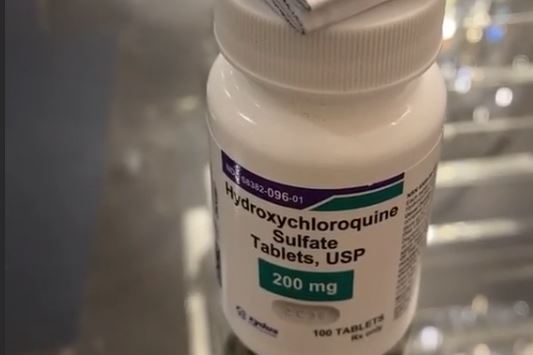If I'm understanding you correctly, then you are ignoring the fact that, given that the institution was ever in place, and the people that effected it and had the power over it, (lawmakers, police,) are still in positions of power, that you still have de facto institutionalized racism. And it is systemic.
I am not ignoring that fact. Actually, you did agree with me and haven't noticed, because yourself wrote above that people who are in positions of power are racists. And that is exactly my point. It
always comes down to the individual. If it is an individual in a position of power -- the effect is worst. And you are calling that (now) "systemic racism". Again, you can morph this in the shape or form that you want. So, as a concept, it is useless. Fight real racism, don't create ghosts.
I know a white South African who still would, and does. And you say that the "only" thing you count is...oh, right...most land is owned by whites there. That's rather a big deal to say "only" about.
No wonder he is white... and the "only" in no way meant that said problem was small. It is a huge one (that you can actually measure, btw). What the hell is naive on my statement? That there are real problems -- that started in Apartheied days -- that still need to be solved even if the oppressed ethnicity is in power for 25 years? And suddenly inventing an empty expression to describe those problems in not naive? Gimme a break.
Again, we fundamentally disagree here. You are very sympathetic to police being in danger, and you say that "one" ethnic group might more likely perpetrate it. This is the crux of the argument, and it goes back to systemic racism. Yes, there's higher crime in neighborhoods of color, (though also in impoverished white communities.) Why? Poverty, which comes from a long history of racism, and classicism. I know that's the same in Brazil. And here's where the long roots of history come into play: In the Jim Crow era, white people vilified black men, also particularly in the context of white women. (I'll come back to this later.) You can't enslave them anymore? Make them the object of white fear. All those years of horrible things you did to them? They must be angry...so you turn your violence on them into threat. Then you also keep them down economically. So they live in shitty circumstances, with fewer options. Then the Civil Rights movement happens. Congress and the Supreme Court pass laws to give blacks equality in many things, like voting. So what happens? Suddenly the NRA goes from being a gun club to a political force. Why? Arm white people against the insurrection to come. "Law and order" becomes a political slogan, and what it means is keeping black people in place. (It took a long time to get here, but this is my point about police being about keeping down black people.) Then we get the war on drugs. (Not powder cocaine, because that was the drug of choice of rich white folks. Crack cocaine, which was a black street drug.) Bottomline: what happens? Cops, even black cops, see black men as a threat. We've created a long running narrative on that. So now a black man reaches for his driver's license, or a 12-year-old black boy has a toy gun in a playground or an African immigrant reaching for his wallet to show ID is perceived as a threat. For no reason other than that they are black, and they get shot and they die. They cop is nervous. And we know why. He's been taught to be. Not by recent history, but by long history.
I am not sympathetic to police being in danger. I am only not being hypocritical that I want to live in a world with no police. Unfortunately, history shows that we need police. Even countries with sky high social standards need police. I know damn well that policemen can abuse authority -- specially if they have prejudice. But I also am able to acknowledge that their job is a fucking difficult one.
I agree that cops, even black cops, see black men as a threat. The difference between us is how we respond to that question. And, yes, cops are nervous. Problem is that even good cops are nervous (and no, I am not saying that the recent assassination was committed by a good cop, before you accuse me of that). That people would get hurt from the "war on police" climate was, and is, and obvious conclusion.
Of course white racists with access to fire arms and political force would try to bend institutions in their favor. But the moment you conflate it all together, your analysis becomes useless. Do you really think the NYPD is a copy of some local police in some southern state?
By the way, you mentioned crack. Beware of one thing... I also don't like the "war on drugs" concept (people in principle should be free to do everything, including drug themselves), but crack kills way more than cocaine. The greatest war between drug dealers here happened between cocaine and crack dealers. The cocaine dealer's claim was that crack was killing their clients. But, yes, police force are much more lenient with drugs consumed on higher society (which kills the moral argument of the war on drugs).
I don't understand how taking this case of the murder of George Floyd isn't representative, and rightfully so. Straw that broke the camel's back.
Because it makes a hell of a difference if you are talking about one case which represents thousands of similar others. I fully agree with one thing that's been pointed out (old argument, but still good), which is now that there are cameras everywhere (specially body cameras, and car cameras), you cannot cover up evidence that easily. But see how the best response came from
within the system? My whole point is: don't try to change a game that you are
winning, or at least starting to make it even. Ask any politically active black person if he thinks that the
real number of unarmed black people killed by the police is higher now, or in the 80's? If you listen to what the lawyers of Rayshard Brooks are saying (and I agree with a good part of their points, but not all), they are not asking to defund the police, neither to end it. They are asking for better training and better de-escalation abilities. One of the lawyer's raised an important point: the moment Brooks knew he would be handcuffed, he feared for his life. That's understandable, after Floyd's case. But what would be his reaction if he knew what is the actual percentage of black men who do not resist arrest and are killed? How can this matter of public perception can be ignored,
specially in this case? (btw, shooting in the back is murder, even considering all the circumstances. Both killer and killed could have prevented that from happening, but that does not exempt the killer's responsibility).
The straw that broke the camel's back is a good argument on paper, but there are a lot more playing out here, including a pandemic and an incoming election. That cannot be ignored.






